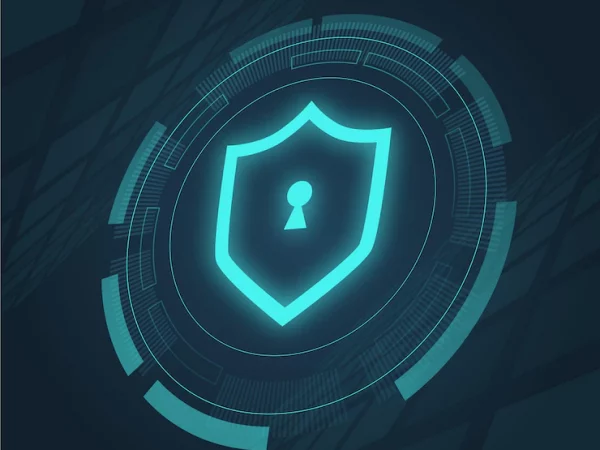Endpoint Security
Shrink Your Attack Surface by Hardening Your Endpoints
What Is Endpoint Security?
PCs, tablets, mobile phones, IoT devices – they’re all endpoints, and their numbers are growing.
Endpoint security is a form of cyber security that focuses on the protection of endpoints, such as laptops, desktops, mobile devices, and internet of things (IoT) devices, from threats and vulnerabilities. Endpoint security solutions provide an additional layer of defense against malware, ransomware, spyware, and other cyber threats. Endpoint security systems are typically composed of a combination of hardware, software, and security protocols that are used to detect, prevent, and respond to malicious activities. Endpoint security solutions can also be used to monitor and control user access to the network and enforce security policies. Endpoint security solutions typically include antivirus and anti-malware software, firewalls, intrusion detection and prevention systems, and other security solutions.

AVIH Endpoint Security Services
Endpoint security services are a type of cyber security solution designed to protect networked devices, such as laptops, desktops, smartphones, and tablets, from malicious threats. These services provide an extra layer of protection for businesses by monitoring and blocking malicious activities, such as malware and phishing attacks, on their connected devices.
This can help to reduce the risk of data breaches, identity theft, and other cyber-related crimes. Endpoint security services can also be used to monitor employee activity, detect insider threats, and enforce corporate policies. By taking advantage of these services, businesses can protect their networks, data, and customers from the increasing threat of cybercrime.
Endpoint security services are a critical component of an organization's overall security strategy. Endpoint security services provide an extra layer of protection against cyber-attacks and help ensure the safety and integrity of an organization's network and data. Endpoint security services can protect an organization from malicious software, unauthorized access, data loss, and other threats.
Endpoint security services typically involve a combination of security measures such as firewalls, antivirus, anti-malware, intrusion detection, and content filtering. Firewalls protect an organization's network from unauthorized access by monitoring incoming and outgoing traffic. Antivirus and anti-malware programs detect and remove malicious software from the system. Intrusion detection systems detect attacks against the system and alert administrators. Content filtering tools monitor and control access to websites and other content that could potentially compromise the system.
Endpoint security services also include regular system maintenance and patching. System maintenance ensures that the system is up-to-date with the latest security patches and fixes. This helps reduce the risk of a data breach or other security issue. Additionally, endpoint security services can provide incident response and investigation services if a security incident does occur.
Overall, endpoint security services are an essential part of any organization's security strategy. By providing additional layers of protection and regular system maintenance, organizations can reduce the risk of a damaging data breach.

Some of the endpoints on your enterprise network are corporate, but roughly two-thirds of employees use personal devices at work. Not only is every endpoint a target for hackers, each one is also susceptible to unintentional information sharing and user error.
That’s where AVIH can help.
Our experts leverage their decades of experience to find the optimal blend of services and technology to harden your endpoints.
Types of Endpoint Security
- Antivirus software is the most basic form of endpoint security. It is designed to seek, detect, prevent and/or remove software viruses and various types of malware.
- EDR solutions supplement traditional endpoint security technology by enabling security analysts to record key activity on endpoints, improving their ability to investigate threats both reactively and proactively. MDR is essentially EDR delivered as a managed service and allows organizations of all security maturity levels to reap the benefits of EDR, even if they don’t have in-house expertise.
- XDR tools are relatively new on the security scene. These solutions are designed to expand visibility beyond what EDR can provide by aggregating data from endpoint, network, email, cloud, SIEM/SOAR and other solutions then leveraging artificial intelligence (AI) and machine learning (ML) techniques to correlate activity and identify true threats. MXDR allows organizations to outsource all or part of the management of an XDR tool to a third party.

AVIH Endpoint Security Services
Endpoint security is a constant challenge. Let AVIH take some of the load with our endpoint security services.
Endpoint Security Assessments
Don’t know where to start, or just want to know if you’re on the right track? Our endpoint security assessments are designed to bring clarity. We work with key stakeholders in your organization to understand technology requirements and business drivers so we can provide thorough, objective advice that’s focused on your enterprise.
Endpoint Security Configuration Review
Having the right endpoint security tools is only half the battle. Hardening your operating systems can save you the cost and headache of deploying unnecessary products. We’ll review your endpoint system’s security configuration and compare it against CIS hardening guidelines and industry standards.
Managed Security Services (MSS)
Maybe you’re understaffed, or maybe you just lack expertise in a few areas. Maybe you’d just rather the experts handled your endpoint security. Whatever the case, you’re not alone. We’ll craft an endpoint solution tailored to your organization’s unique environment, whether that’s authorized support, endpoint management.
Endpoint Security Assessments
Endpoint security assessments are an integral part of any organization's overall security strategy. These assessments are designed to evaluate the security of the organization’s endpoint devices such as laptops, desktops, tablets, and other mobile devices. By performing an endpoint security assessment, an organization can identify and address potential vulnerabilities in the network and devices, and ensure that all security protocols are in place and functioning properly.
The goal of an endpoint security assessment is to identify and assess risk related to the organization's endpoints. During the assessment, the security team will analyze the current security posture of the endpoints, identify any weaknesses or deficiencies in the security protocols, and recommend solutions to mitigate the risk. The assessment will also include an assessment of the organization's policies and procedures for endpoint security and a review of the existing security solutions that are in place.
When performing an endpoint security assessment, the security team will use various tools and methodologies to evaluate the security posture. These tools can include network scanning, vulnerability scanning, application scanning, and log analysis. The team will also review the configuration of the endpoints, including the operating system, software patches, and security settings. Finally, the team will evaluate the organization's policies and procedures for endpoint security and recommend any necessary changes.
Once the assessment is complete, the security team will provide a report that outlines the findings and any recommended changes. This report should include a detailed description of the security vulnerabilities and their associated risks, as well as recommendations for mitigating them. The report should also include a timeline for implementing the recommended changes, and a list of resources that the organization can use to ensure that their endpoints remain secure.
Managed Security Services (MSS)
Managed Security Services (MSS) is an increasingly popular form of IT security that provides businesses with a comprehensive set of security services. These services are tailored to meet the specific needs of each individual company, and cover a wide range of security-related tasks. MSS allows businesses to outsource their security requirements to a third-party provider, who can provide the necessary resources, expertise and infrastructure to ensure the safety and security of a company’s data and systems.
MSS can provide a number of services to businesses, including network security monitoring, vulnerability scanning, intrusion detection and prevention, incident response, security policy implementation, and audit and compliance. MSS can also help businesses to manage their security infrastructure, including configuring firewalls and intrusion detection systems, maintaining security patches, and monitoring system logs.
MSS can provide businesses with a great deal of flexibility and scalability. Companies can choose the level of security they require and can also customize the services they receive to fit their budget. Furthermore, businesses can outsource all of their security needs to a single provider, allowing them to focus their resources on other aspects of their business.
Overall, Managed Security Services can provide businesses with the tools and resources they need to ensure the security and safety of their data and systems. Whether a business needs basic security services or more specialized services, MSS can be tailored to meet the unique needs of each organization.
Endpoint Security Configuration Review
An endpoint security configuration review is an important part of any IT security program. It is a comprehensive assessment of the configuration of endpoint devices, including desktops, laptops, servers, and mobile devices. The purpose of the review is to identify any potential security vulnerabilities and make recommendations for improvement.
The review should start with a detailed inventory of all endpoint devices in the environment. This should include information such as operating system versions, applications and services, patch levels, and firewall settings. Once the inventory is complete, the review should move on to evaluating the security configuration of each device. This includes assessing the strength of passwords, encryption settings, authentication protocols, and access control measures.
The review should also analyze the configuration of third-party security solutions such as anti-virus software, intrusion detection systems, and endpoint security solutions. These solutions can provide additional layers of protection, but they must be correctly configured in order to be effective.
Finally, the review should assess the effectiveness of existing policies and procedures. This includes evaluating user access rights, patch management processes, and incident response plans.
Once the review is complete, the findings should be documented and shared with the appropriate stakeholders. The document should include a list of any security vulnerabilities and recommended solutions. It should also outline any changes that need to be made to existing policies and procedures.
AVIH's Advantage
Let us take care of your security so you can focus on your business.

